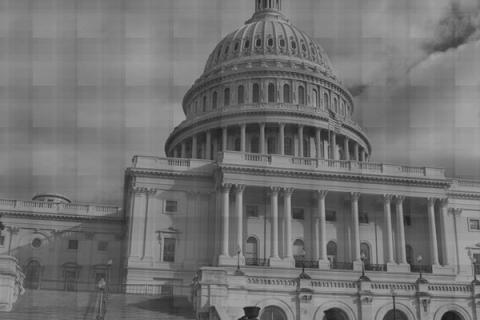More than a month into the state’s new fiscal year, Assembly and Senate Democrats proposed a joint budget that includes tax increases, causing Republican lawmakers and Governor Schwarzenegger to pronounce it dead on arrival. The plan would close a $17.9 billion budget gap largely through $8.4 billion in spending reductions, $4.1 billion in federal funds, and $2.4 billion in tax increases.
Democrats would reduce state funding for public schools by $3.4 billion less than proposed by Schwarzenegger. “(This plan) reflects the core values of Californians and makes decisions that will help, rather than hurt our economy,” Assembly Speaker John Perez, a Los Angeles Democrat, said in a statement. “It keeps 430,000 teachers, cops, firefighters and small business owners working and will help small businesses create more jobs,” Perez said. “It restores cuts the governor’s budget made to education, closes costly loopholes and doesn’t impose broad-based taxes on Californians.”
Republicans said the tax increases in the plan doom it. “The Democrats’ budget plan doesn’t create jobs, doesn’t reform pensions, and doesn’t significantly reduce spending. Instead it relies on billions in income, car, gas, and business tax hikes in order to keep growing government,” said Senate Republican Leader Dennis Hollingsworth of Murietta. “We need to reduce spending so that we can balance the budget without raising taxes.”
The tax increases Republicans object to are primarily increases in state taxes that can be deducted from federal taxes such as state income tax and vehicle license fees. Chief among the increases is a 1 percent increase for every income tax bracket except the top, which currently is 9.55 percent. A .25 percent surcharge imposed by the February 2009 budget, set to expire next year, would also be continued. Some $8.7 billion in additional income tax revenue would be raised during the current fiscal year by doing so. Raising the lower brackets by 1 percent “would flatten the tax structure and, on the margin, would reduce personal income tax volatility by shifting reliance away from the top income tax bracket,” Democrats assert.
Vehicle license fees, basically a property tax on cars and trucks, would increase from 1.15 percent to 1.65 percent. Under the February 2009 budget, license fees are scheduled to fall to .65 percent in 2011. Like state income taxes, license fees are deductible on federal taxes.
The tax increases allow Democrats to reject Schwarzenegger’s proposal to eliminate some $1 billion in state funding for welfare – a move that would cost the state $4.1 billion in federal funds – and $3.4 billion in proposed reductions to public school funding.
Sales taxes, the state’s most regressive tax – billionaires pay the same rate as a family earning $40,000 a year – would be reduced by 2.5 percent over two years, 1.75 percent in the current year. That would drop the state share of sales tax from 6 percent to 4.25 percent and 3.5 percent the following year. California has the highest sales tax rate in the country. Democrats say:
“The proposal would swap out taxes that are not deductible -- sales tax -- for taxes that are deductible when determining federal income tax owed. An average taxpayer in each tax bracket could see a tax cut that ranges from $10 to over $1,000 depending on their tax bracket and the percentage of their household budget spent on taxable goods.”
Democrats would also impose an oil severance tax that would generate $600 million in the budget year and twice that the following year. The California Chamber of Commerce expressed opposition to the idea. “Imposing a new tax on California oil will make ours the highest taxed oil in the country, leading to job loss in those communities that produce oil in our state and higher gasoline prices for all Californians,” said Allan Zaremberg, the Chamber president. “These proposals would clearly put California at a competitive disadvantage and kill jobs.”
Two tax breaks for companies, including one that changes how companies doing business in multiple states calculate their California taxes, would be postponed for two years, saving an estimated $2.1 billion.
The plan also closes part of the budget hole by using estimates by the Legislative Analyst, which shows state revenues $1.4 billion higher than those of the GOP governor.
For more information on the Democratic plan, click here.

